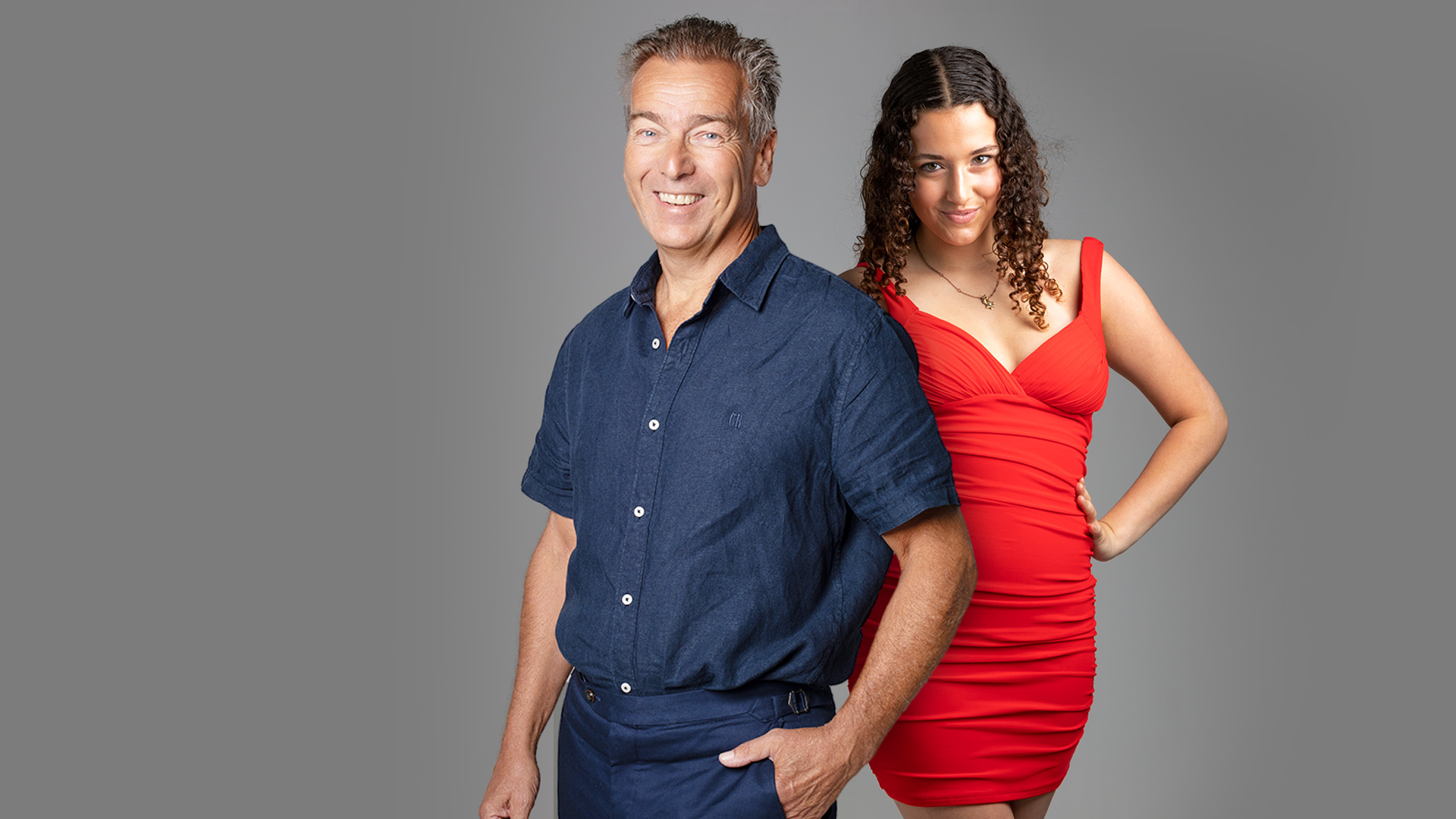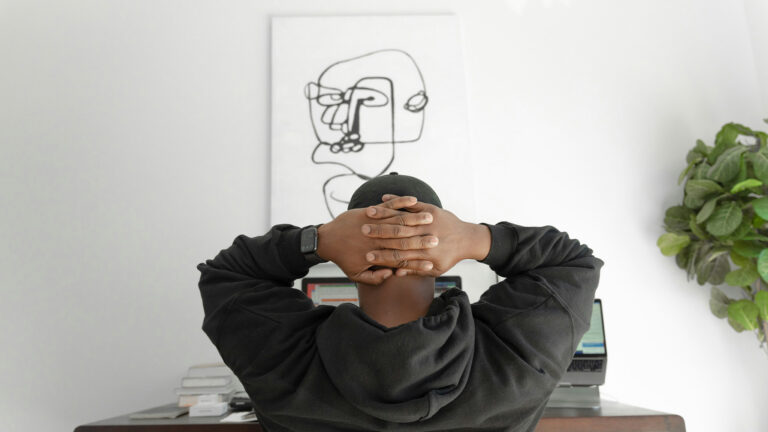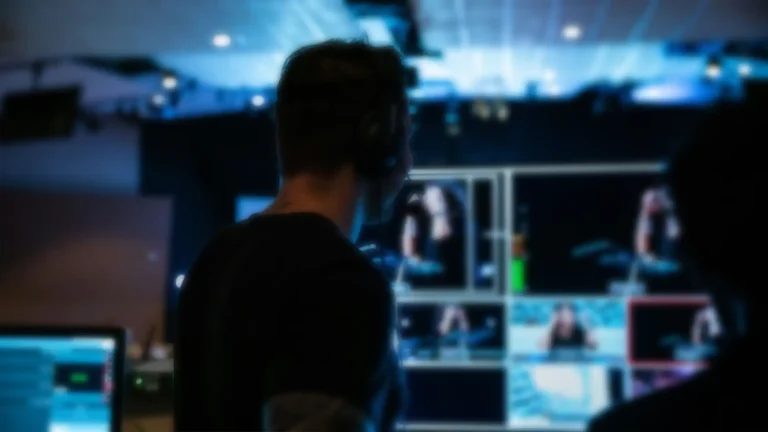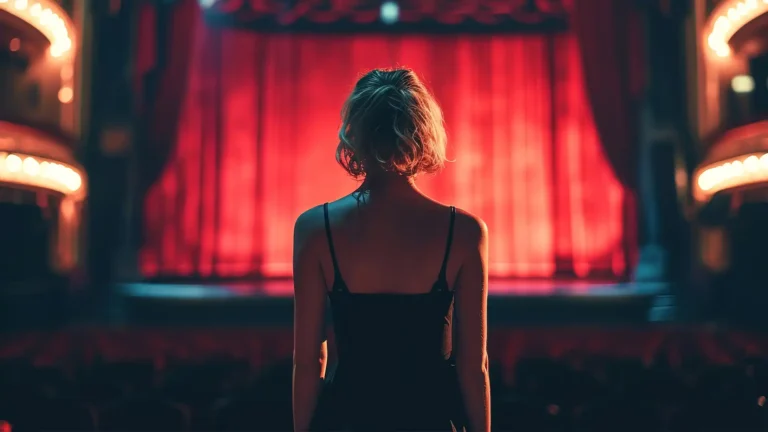Acting Terms quick links
Actor/Actress
An actor or actress is simply any person who portrays a character in a film, television show, play, or any other form of storytelling both visual and aural. Actors and actresses use their voices, physical attributes and movements to bring characters to life and tell stories that entertain, educate, and inspire audiences. These days the term actor is often used to refer to male, female, and non-binary people who act. In fact, while still used throughout the industry, use of the term actress has been in steady decline for some time now.
Agent
An agent, also known as a talent agent or booking agent, is a person or company that represents actors and helps them book auditions and find work. Acting agents will build relationships with casting directors and other industry professionals to secure auditions and job opportunities for their clients. They can also help to negotiate contracts and manage their clients’ careers including everything from organising press events to promotional work. Actors often rely heavily on their agents to help them navigate the complex and competitive world of entertainment. We always say ‘behind every good actor is a great agent’!
Audition
An audition is the process through which casting directors, producers, or other decision-makers see actors perform so that they can choose the best person for a specific role in a production. The actor may perform a scene from the upcoming production or specific lines that the casting director has chosen for them. In many cases, the actor will perform a monologue that they have prepared themselves ahead of the audition. Auditions can be held in person or remotely, and actors may be asked to audition several times before being offered a role in the production. This is particularly true for lead roles or other prominent roles in the production.
Backstage
Backstage refers to the areas of a theatre, performance space, film set, or TV set that cannot be seen by the audience. These areas are typically behind the stage (at the ‘back’ of the ‘stage’) and will often include dressing rooms, storage rooms, and other spaces where actors and crew members can prepare for a performance or even take a break from production. Backstage can also refer to the behind-the-scenes activities that go into putting on a performance, such as set design, costume design, hair and makeup and rehearsals.
Cast
The cast is the group of actors who perform in a production for either film or stage. The cast can include leading actors, supporting actors, and extras, and in some cases it may refer to the crew members who work behind the scenes. Generally speaking though, it usually just refers to the actors and extras that appear in the production. The cast of a production is typically determined through a casting process, in which actors audition for specific roles. Once the cast has been assembled, they typically rehearse together to prepare for the performance.
Callback
A callback is a second audition for an actor who has impressed the casting team during the first audition or open casting. After performing in the first round of auditions, the actor may be called back by the casting directors or producers. This is usually for a second audition in order to see them again and get a better sense of their skills and abilities. Callbacks are typically more in-depth and focused than the initial auditions, and may involve the actor performing additional scenes, reading with other actors, or doing a cold reading from the production’s script. Callbacks are a very big deal in the world of acting even if an actor doesn’t get the part as it shows that they are at least moving in the right direction.
Casting director
A casting director is the person responsible for choosing the actors for a production, typically based on their auditions and the needs of the project. The casting director is usually the first person who actors audition for, and they are responsible for evaluating the actors’ initial performances and deciding who is right for the various roles in the production. The casting director may work closely with the director and other members of the creative team to decide who are the best actors for the project, and they may also be responsible for organising and scheduling auditions and callbacks. In some cases, the casting director may also be involved in negotiating contracts with the actors who land the role. In a nutshell, this is the first person that an aspiring actor needs to impress.
Character
A film character is a person, animal, or other being (ghosts, aliens, monsters) that appears in a film. Film characters can be fictional or based on real people, and they are usually created by the screenwriter or director of the film. The characters in a film play a crucial role, as they are important to the story arc of the production. A character may have specific traits, such as a personality, appearance, and backstory, that help to define them and make them unique. This is hugely relevant to the auditioning process as not every actor can easily portray a character in the way that a director envisions.
Characterisation
Characterisation is the process of creating and developing a character in a story or a play. This means giving a character a unique personality, appearance, and background, and making choices about the character’s thoughts, feelings, and actions. This usually helps with the story arc and most characterisation is relevant to the plot of the production. Characterisation can be done through the dialogue and actions of the character, as well as through the descriptions and reactions of other characters. The best characterisation will make a character feel realistic and relatable to the audience, and that in turn helps viewers to better understand the story and the characters reasons for behaving in the way that they do.
Cold reading
A cold reading is an auditioning technique whereby an actor is given a script or scene that they have never seen before and must read it and act the part without any preparation. This puts the actor under a little pressure and gives the casting director a chance to see how good their acting and improvisation skills are. It also shows whether or not the actor understands the character from minimal information. Many actors use cold readings to practise their improvisation skills so they don’t get caught out in an audition.
Cue
A cue is a specific line or action that lets an actor know that it is time for them to speak or perform an action. Cues can be verbal, such as a line of dialogue spoken by another actor, or nonverbal, such as a gesture or a change in the lighting or even a movement of a prop. Cues are hugely important to a performance, as they help to keep the actors and the rest of the production on track and in sync. An actor who misses their cue can cause all kinds of issues so getting this right is incredibly important for any aspiring actor.
Co-star
A co-star is an actor that appears in production on stage or film alongside other actors of equal importance. A co-star will often play a leading role or a prominent role in the production. In some cases, it refers to a famous actor who appears in a TV show alongside another famous actor.
Dialogue
Dialogue is a conversation or exchange of words that takes place between two or more characters in a stage, radio, or film production. Dialogue is an important element of storytelling as it allows characters to express their thoughts, feelings, and opinions, and it helps to move the plot of the story to its conclusion. In many cases, dialogue is used to reveal character traits, create tension, and build suspense. It can also be used to add humour or provide insight into the events of the story or the reasoning behind a character’s actions.
Director
A director is the person who is ultimately responsible for the artistic and technical aspects of a film, television show, play, or other production. The director works with the cast and crew to bring the script to life and create a final production that tells a story, delivers a message, or simply engages or educates the audience. The director makes creative decisions, such as which camera angles to choose, and the positioning of actors and how they perform. The director is often considered the driving force behind a production.
Ensemble
An ensemble is a group of actors who work together. This could be to create a play or virtually any other type of acting performance. An ensemble will usually consist of a cast of characters who appear on stage together, or it may be a group of actors who support each other in their individual roles. Ensemble acting involves a high level of collaboration and cooperation, and it can create a sense of unity and cohesiveness in a production. Ensemble members will sometimes also share other responsibilities such as costume changes, props, and scene transitions. In other words, the ensemble is a ‘catch all’ group of actors who handle pretty much every aspect of the production.
Extra
An extra, also known as a background actor or background performer, is someone who appears in a film or television show in a non-speaking capacity. Extras are usually used to fill out scenes and create the illusion of a crowd or just a typical busy environment. Extras may be asked to walk across a street, buy something in a store, stand in a crowd, or eat something in a restaurant. However, they are never given any lines or specific actions to perform. Extras are typically paid a much lower rate than actors who have speaking roles.
Improvisation
Improvisation is the act of creating or performing something spontaneously, without any preparation or planning. In the context of acting, improvisation refers to the practice of creating dialogue, character actions, and other elements of a performance on the spot, rather than following a script. Improvisation, also known as improv, is often used in acting classes and workshops as a way to develop spontaneity and creativity, and it can also be used in auditions and actual performances.
Lead
In acting, a lead is the main actor in a production. They are often the one with the most screen time and the most important character arc. The lead is usually the central character of the story, and their actions and decisions drive the plot forward. In a film or television show, the lead will, more often than not, be the main character who is featured in most of the scenes. In a play, the lead is typically the character who appears in the most scenes and has the most dialogue. In many shows and movies, the lead will be the most famous or well-known actor in the production.
Monologue
A monologue is a speech or soliloquy performed by a single actor, often as part of an audition or acting exercise. A monologue allows an actor to showcase their acting abilities and express the thoughts, emotions, and experiences of their character. In an audition, an actor may be asked to perform a monologue from the script of the production they are auditioning for, or they might perform one that they have already prepared. Monologues are a great way for casting directors to see what skills and range an actor has and for an actor to showcase their talents.
Method acting
Method acting is a technique used by actors to create realistic and emotionally resonant performances. Method actors aim to fully immerse themselves in their characters, using personal experiences and emotions to bring the character to life. To prepare for a role, a method actor may do extensive research and character analysis, as well as spending some time living as the character would. Method acting was developed in the 1950s and 1960s by Lee Strasberg and the Actors Studio, and it has been used by many well-known actors since.
Playwright
A playwright is a person who writes plays which are usually intended to be performed on stage or over the radio. Playwrights create the dialogue and characters for the play, and may also be involved in its production. A playwright’s work may also be adapted for the screen. Think William Shakespeare and you’re on the right track!
Prop
A prop is a piece of equipment or an item used in a production to help the director with the visual aspect of the story or setting. Props are typically small items that are handled by the actors or are used to furnish the stage or set, and they can include things like furniture, weapons, or other objects that are necessary to the story or the atmosphere of the performance. Did you know that the term “prop” is short for “property” and refers to the objects that belong to a character? That’s a good one for your next quiz night!
Rehearsal
A rehearsal is a scheduled time during which actors and other members of the production team practice scenes and lines. Rehearsals usually take place after the casting process and when the director has developed a creative vision for the production. During rehearsals, the actors will often work with the director and other members of the creative team to explore their characters, develop their performances, and fine-tune the details of the production.
Role
A role is a character that an actor is cast to play in a production. Every role has specific lines, actions, and characteristics that the actor must portray on stage or on screen. There are often multiple roles in a production and while most actors will play a single role, there are some productions where actors will take on multiple roles. While each role is important, leading roles are usually the most relevant to the story arc or plot of a production.
Scene
A scene is a part of a script that takes place in a specific location and typically involves a limited number of characters. For example, a scene might be set in a kitchen with two family members arguing over meal preparation. Once it moves to another location, it becomes a new scene. Most productions will have a huge number of scenes that are set in various locations or at different times and may involve different characters.
Scene partner
A scene partner is an actor who shares a scene with another actor in a play or film. Scene partners will often work together to deliver their lines and perform their actions in a way that is natural and believable. In order to do this, they must be able to listen and respond to each other in a way that feels spontaneous and unscripted. Sounds easy, but it’s much more difficult than it looks. Scene partners often develop a strong rapport with each other as they spend a lot of time rehearsing together. In some cases, this can result in an authentic relationship on screen or stage.
Screen test
A screen test is a filmed audition in which an actor performs a scene from a script or improvises a scene in order to demonstrate their acting ability. In other words, it’s a recorded audition. Screen tests are typically used in the casting process for films and television shows, and they allow the casting director and other members of the production team to see how the actor looks and sounds on camera. Screen tests are not to be mistaken for remote auditions or self tapes as they are usually carried out in the second or third round of auditions and take place in a studio or on set.
Script
A script is the document that contains all dialogue and stage directions for a play, film, or TV show. The script is the blueprint for the performance, and it provides the actors and other members of the production team with the information they need to bring the story to life. Scripts are usually written by screenwriters or playwrights, and they may undergo quite a few revisions and edits before the final version is produced. For plays and stage productions, the script is sometimes known as the “play text” or the “playbook.”
Set
A film set is the area where a film or television production is shot. A film set can be a real location, such as a room, shopping mall, a park, or even a busy city street. It can also be a specially constructed space, such as a studio or a sound stage. The set is where the actors perform their scenes and where all the magic happens. The film set is also where the crew members work to capture the performances on camera and to manage the technical aspects of the production.
Side
An actor’s side is a piece of dialogue or a brief scene that is used as an audition piece or a “sample” of the actor’s work. An actor’s side is usually just a few lines of dialogue that the actor can use to showcase their abilities and to give the casting director or director an idea of their range and style. Monologues can also be considered sides.
Stage direction
Stage directions are specific instructions that tell actors what they should do in a scene, where they should go, and how they should behave on stage. These are often instructions for physical movement and placement. These are written in the script to help the actors understand what is happening and when they need to move or do something. Stage directions can also include descriptions of the characters’ expressions. They may also include details about the set, the lighting, the sound, and the costumes.
Staging
Staging is the process of planning and arranging all the various elements of a production. This includes the actors, the set, the lighting, and the sound. Staging can also involve the placement of the actors on set or stage and the design of the set and any costumes. Staging is often carried out by the director with help from designers and, in some cases, the actors themselves.
Stand-in
A stand-in is a person who takes the place of an actor during rehearsals, camera and lighting setup, and other preparations for a film or television production. Stand-ins will usually be the same height and size as the actor and may even look a little like them. The stand-in’s job is to pretty much stand on set so that the crew can set up for a scene knowing where the actor will be and what the shot will look like. Once this is all set up, the stand-in will be replaced by the actor to shoot the scene.
Stunt double
A stunt double is a person who performs stunts and all kinds of dangerous activities that an actor may not be able to do or that the production company may not allow them to do. This can include everything from difficult fight scenes to horse riding or even driving a car at high speed. Stunt doubles must resemble the actor in some way so that when the scene is shot, it looks like the actor has carried out the action themselves. In some case, stunt doubles may wear wigs or masks so that they look more like the actor.
Take
A take is a single recording of a scene. A take may consist of a single shot or multiple shots that are edited together to create a continuous sequence. A take begins when the director calls “action” and ends when the director calls “cut.” During a take, the actors perform the scene and the scene is recorded. It may take multiple takes to get the scene right which is why you may hear ‘take 7’ or even ‘take 29’ on set.
Theatrical makeup
Theatrical makeup used for the stage is a little different to makeup that is used on film. This is because it is designed to be visible from a distance and under bright stage lights. So we often see a much more exaggerated application of makeup that really pops. Film and TV makeup, on the other hand, is slightly more understated although it is still much more noticeable than regular makeup for daily use. Theatrical makeup can be used to create a wide range of visual effects such as injury, age, or even the features of fictional characters.
Table read
A table read is a meeting during which the cast and crew of a film or television show gather together and read through the script. It’s an opportunity for the actors to hear the dialogue out loud and get a sense of how the story will play out. It’s also a chance for the director and other members of the creative team to offer feedback and make any necessary changes to the script.
Understudy
An understudy is a person who learns the role of another actor in a play or a musical, and who is prepared to perform the role if the actor is unable to do so. This is sometimes confused with a stand-in which is explained above. Understudies will attend rehearsals and performances, and they often work closely with the actor to learn their lines and actions. In some cases, an understudy may also be called upon to perform the role in a preview or a performance if the actor is unavailable. Understudies are rarely used in film as recording can be delayed if an actor is ill.
Voiceover
A voiceover is when a voice that is not part of the story is used to provide narration. Voiceovers are often used in films and TV shows to provide context to the story. For example, a voiceover might be used to narrate a character’s thoughts. These are usually recorded in a studio by a professional voice actor, and they are added to the production during the post-production process. Voiceover actors or artists rarely come on set and meet the other cast members.
Wardrobe
Wardrobe is the clothing and accessories worn by the actors in a play, film, or TV show. The wardrobe for a production will be designed by a costume designer. They will either create or select the appropriate clothing for a character or a scene. The wardrobe is a vital aspect of the production as it can give the audience a sense of the character by either making them relatable or by lending authenticity to the role. Wardrobe will include items like shoes, hats, jewellery, and props that are worn or carried by the actors.
Workshop
An acting workshop is a class or program where actors come together to improve their skills. Acting workshops can take many different forms, depending on the focus of the workshop and the goals of the participants. For example, a workshop might focus on acting with emotions or improvisation techniques. Acting workshops are an important part of development for both aspiring and experienced actors. We’re sure that you will come across quite a few more terms in the world of stage and film production particularly when it comes to the equipment on a film set or the crew members and their responsibilities. However, when it comes to acting alone, the list above covers the most common terms. Remember, if you’re new to acting or you’re looking for new representation, Hunter Talent is always on the lookout for the best acting talent in the industry. Get in touch today or apply to join the agency and we’ll get right back to you as soon as we can. Now all that’s left is to wish you the best of… oops, that’s not right! Off you go and break a leg!





